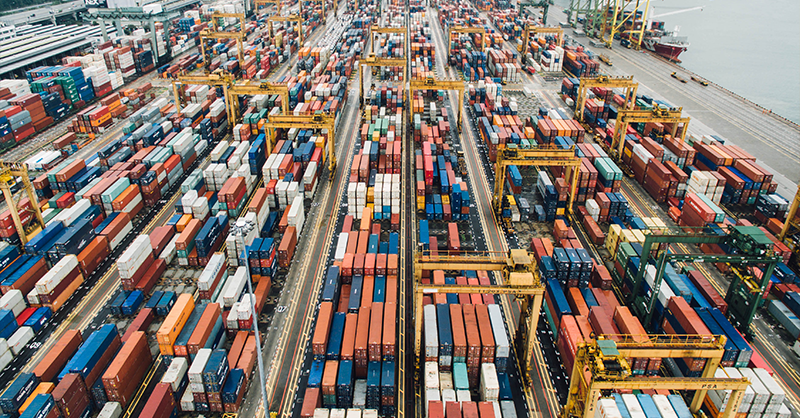Cargotec-Konecranes merger sets tone for future UK-EU divergence
29 March 2022 16:01 by Andrew Boyce

The UK competition regulator’s block of Cargotec’s merger with Konecranes has set the tone for future divergence from the European Commission and exposed the authorities’ conflicting views on remedies.
That the Competition and Markets Authority’s adverse finding was enough to scupper the deal in its entirety, reinforces its reputation as a regulator to be mindful of, particularly for companies that can’t come up with a clear-cut solution to address its concerns.
Today the CMA blocked Cargotec and Konecranes’ planned merger after finding it would harm competition in the supply of a wide range of container-handling equipment products.
The watchdog rejected proposed commitments to divest Konecranes’ lift truck business and Kalmar automation systems, because it believed the asset packages “lacked important capabilities.” The CMA said that whoever bought them wouldn't be able to compete as strongly as the merging businesses do at present.
The block was enough to cause Cargotec and Konecranes — which were still waiting on regulatory approval in the US, Australia and New Zealand — to cancel their deal in its entirety.
Cargotec-Konecranes was the first phase II review the CMA had conducted in parallel with the EU watchdog, and the divergence in their findings highlights tensions over their differing approaches to remedies, which have been bubbling for some months now.
It also suggests a tilt towards the Anglosphere for the UK enforcer. While we can’t say for certain what the Australian Competition and Consumer Commission or US Department of Justice would have decided, rumblings from the regulators suggested similar skepticism to the CMA over the remedies offered.
The ACCC’s then chairman Rod Sims said in February that the remedy package offered by Cargotec and Konecranes was complex and could increase implementation risks. The watchdog also appeared unconvinced a prospective buyer of the divested businesses would be an effective, long-term competitor to the merged group.
Jonathan Kantar, who leads competition enforcement at the US Department of Justice, expressed similar doubt over “complex” remedies.
Remedy tensions
Tensions have, for a while now, been brewing between the CMA and EU executive over the appropriateness of asset sales to resolve competition concerns about problematic deals.
The CMA has consistently said it believes remedies should offer a clear-cut solution to concerns and should not be complex. The commission, by comparison, has taken a slightly more relaxed approach, believing that divestments can preserve competition in the market.
In the year leading to the UK’s official withdrawal from the bloc, which saw the CMA no longer bound by the EU’s “one-stop shop” principle and able to review cross-border mergers, the regulator made its criticism of several EU decisions known.
First, its chief executive Andrea Coscelli said behavioral remedies offered in the Google-Fitbit deal probably wouldn’t have been accepted in the UK, had the CMA had a chance to review the deal.
Similar criticism was mounted over the commission's approval of Aon’s purchase of Willis Towers Watson. The Aon deal would have had a significant impact on the UK market, but this was reviewed by the EU agency because it was notified prior to the end of the Brexit transition period. This meant the CMA couldn't carry out its own separate review of the transaction.
The commission approved the merger in July 2021, subject to it selling various parts of Willis Towers Watson's business, notably reinsurance and commercial risk brokerage, to Arthur J. Gallagher. The CMA was uncomfortable with that solution to the deal, which ultimately fell apart after it was challenged by antitrust regulators in the US.
EU’s position
On Friday EU competition chief Margrethe Vestager pointed to the Cargotec merger as evidence of the commission’s stance on remedies. She said the deal showed how the Europeans have a clear preference for “clean slate” divestiture remedies. And it will only accept them if there are “guarantees” that they will work in practice.
What Cargotec and Konecranes offered, she said, was the offloading of “viable standalone businesses.” The EU watchdog “made sure” the remedies addressed its competition concerns, she said, twice seeking market feedback on the proposal from customers and rivals.
Market players were satisfied that as much competition would remain after the merger as before it, she said.
That said, the commission would negotiate cooperatively with merging parties, Vestager said, and it had to make sure any decision it takes is robust enough to stand up in court. “That means we cannot ignore meaningful solutions that parties choose to offer.”
CMA’s say
But Cargotec-Konecranes has given the CMA the chance to have its own say, and in doing so has exposed just how at odds it is with the EU commission. For companies, the decision should reiterate that approval from the commission will not guarantee a smooth ride in the UK.
While on the one hand this suggests more uncertainty for merging companies, with the CMA fast building a reputation for being tough to appease, it does provide clarity on the CMA's approach to remedies — namely that the simpler and more clear-cut an offering, the better.
Related Articles
No results found
